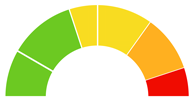Description: An attacker was able to achieve code execution in the content process by exploiting a use-after-free in Animation timelines. We have had reports of this vulnerability being exploited in the wild. This vulnerability affects Firefox < 131.0.2, Firefox ESR < 128.3.1, Firefox ESR < 115.16.1, Thunderbird < 131.0.1, Thunderbird < 128.3.1, and Thunderbird < 115.16.0.
CVE-2024-9680
CVSS Score: 9.8 (CRITICAL)
EPSS Score: 0.31%
Risk Score: 6.86 (HIGH)
Risk Score based on CVSS score and EPSS. This score is for reference purposes and is not internationally recognized.


Mitre ATT&CK Technical v15.1
T1053.002 – At
Technical Analysis & Mitigation Measures
1. Technical Attack Analysis:
CVE-2024-9680 is a use-after-free vulnerability that allows an attacker to execute arbitrary code within the context of the content process of affected applications, specifically Firefox and Thunderbird. This type of vulnerability occurs when a program continues to use a pointer after the memory it points to has been freed, potentially leading to unpredictable behavior, including crashes or the execution of malicious code.
Attack Techniques:
– T1053.002 – Scheduled Task/Job: Attackers may leverage this technique to create or modify scheduled tasks that exploit the vulnerability, allowing for persistence and repeated exploitation.
– Potential Impacts:
– Remote Code Execution (RCE): Successful exploitation can lead to RCE, allowing an attacker to take control of the affected application, potentially leading to further system compromise.
– Data Exfiltration: Once control is achieved, attackers may access sensitive information stored in the application or on the host system.
– System Integrity Compromise: Malicious code execution can lead to the installation of malware, backdoors, or other malicious payloads, compromising the integrity of the system.
– User Trust Erosion: Exploitation of widely used applications like Firefox and Thunderbird can lead to a loss of user trust in these platforms, impacting their adoption and usage.
2. Mitigation Measures:
To protect against CVE-2024-9680 and similar vulnerabilities, the following mitigation measures should be implemented:
– Strengthen Security Configurations:
– Enable multi-factor authentication (MFA) for all accounts associated with Firefox and Thunderbird.
– Restrict permissions for user accounts to the minimum necessary, limiting access to sensitive functions within the applications.
– Utilize Specific Tools or Security Software:
– Install and maintain up-to-date antivirus software to detect and prevent malicious code execution.
– Deploy intrusion detection systems (IDS) to monitor network traffic for suspicious activity related to the exploitation of this vulnerability.
– Implement Monitoring and Reporting Practices:
– Enable logging for all activities within Firefox and Thunderbird to capture any unusual behavior or interactions.
– Set up alerts for abnormal patterns, such as repeated crashes or unexpected changes to scheduled tasks in the system.
– Update and Patch Applications:
– Immediately update Firefox and Thunderbird to the latest versions (131.0.2 for Firefox, 131.0.1 for Thunderbird, or later) to remediate the vulnerability.
– Regularly review and apply security patches for all software in use, especially for critical applications.
– User Awareness and Training:
– Educate users about the risks associated with using outdated software and the importance of applying updates promptly.
– Raise awareness about phishing and other social engineering attacks that may exploit vulnerabilities in applications.
By following these mitigation steps, organizations can significantly reduce the risk associated with CVE-2024-9680 and enhance their overall cybersecurity posture.
The content above is generated by AI. Please review and consider carefully before applying!
Reference Links
https://bugzilla.mozilla.org/show_bug.cgi?id=1923344
https://msrc.microsoft.com/update-guide/en-US/vulnerability/CVE-2024-49039
https://www.mozilla.org/security/advisories/mfsa2024-51/
https://www.mozilla.org/security/advisories/mfsa2024-52/
https://bugs.freebsd.org/bugzilla/show_bug.cgi?id=281992
https://lists.debian.org/debian-lts-announce/2024/10/msg00005.html
Vendor - Produce - Version
Disclaimer
The content on this website is automatically sourced from external websites such as the National Vulnerability Database (NVD), GitHub, and other security-related sources. This content is for reference purposes only, and we are not responsible for the accuracy or integrity of the information linked or displayed from these sources.
